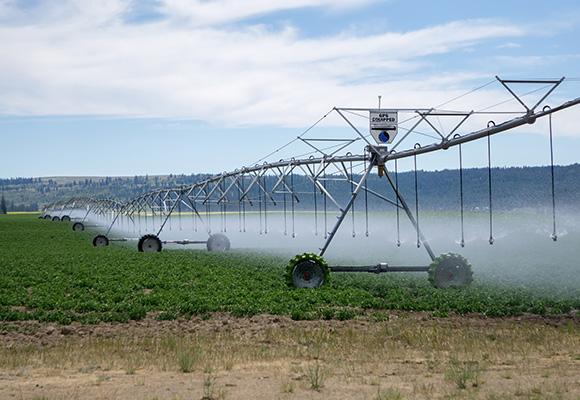In the world of modern agriculture, water management plays a critical role in both crop yield and resource conservation. As farms grow in scale and technology continues to evolve, many operations are turning to automation to improve efficiency. Among these technologies, the automatic water pump controller is quietly transforming how farmland irrigation systems are managed, monitored, and optimized.
This article explores how automatic water pump controllers work in the context of farmland irrigation, their key advantages, and how they can solve the very real challenges farmers face daily. Whether you're managing a small family farm or a large commercial agricultural site, this guide will walk you through everything you need to know.
Table of Contents
What Problems Do Traditional Irrigation Systems Face?
Before diving into the benefits of automation, it's important to understand the limitations of traditional irrigation setups. Many older irrigation systems rely heavily on manual intervention, often requiring farmers to physically start or stop water pumps, measure water levels, or rely on estimated schedules.
Here are some common issues:
Overwatering or underwatering due to human error or inconsistent timing
Water waste, especially in areas with limited water supply or drought-prone regions
Labor-intensive operation, especially when managing multiple pump stations or large areas
System damage due to dry running or pump overuse
High electricity bills from inefficient pump use
For farms aiming to scale up or simply improve their water use efficiency, these pain points can significantly affect profitability and sustainability.

How Does an Automatic Water Pump Controller Work in Irrigation?
An automatic water well pump controller is a smart device that manages the operation of water pumps based on real-time inputs like soil moisture, water level in storage tanks, time of day, or even weather forecasts (when integrated with sensors). It automates switching the pump on or off to ensure water is delivered precisely when and where it’s needed.
Here's a breakdown of how it typically functions in a farmland irrigation system:
Sensors detect water level or soil moisture.
When predefined thresholds are met, the controller activates the pump.
Water is distributed to irrigation lines or storage tanks.
Once optimal levels are reached, the controller shuts the pump down.
In more advanced systems, alerts or logs are sent to a mobile device or computer for monitoring.
These controllers can be integrated into drip, sprinkler, or flood irrigation systems and can be powered by solar or grid electricity, depending on the application.
What Are the Key Benefits for Farm Irrigation?
1. Precision Water Management
Automatic pump controllers help reduce water waste by irrigating crops only when necessary. This not only conserves water—a critical issue in drought-prone agricultural areas—but also prevents plant diseases related to overwatering, such as root rot.
2. Labor Savings and Convenience
Gone are the days of having to visit every pump manually. With automated controllers, pump operations are handled remotely or on schedule. This is especially useful for farms with multiple irrigation zones or remote locations.
3. Equipment Protection
Most quality controllers come with built-in dry run protection, overload safeguards, and short-circuit protection. These features protect your water pump investment by preventing operational failures that can lead to expensive repairs or downtime.
4. Energy Efficiency
By running only when needed, pumps controlled by an automatic system consume significantly less energy. Some advanced systems also optimize pressure and flow to reduce electricity usage further, leading to lower operational costs.
5. Scalability
Whether you're watering a 5-acre field or managing a 500-acre commercial farm, automatic water pump controllers can be scaled up or integrated with broader smart farming systems, including IoT platforms and remote monitoring tools.
Which Features Should You Look for in a Controller for Irrigation Use?
Not all pump controllers are created equal. For farmland irrigation, look for models that include the following features:
| Feature | Why It Matters |
| Moisture & Water Level Sensors | Enables data-driven operation |
| Programmable Timers | Allows irrigation based on schedule |
| Manual Override | Useful for emergencies or special conditions |
| Solar Compatibility | Ideal for off-grid farms |
| Multiple Pump Control | Supports complex or large-scale irrigation setups |
| Weatherproof Enclosure | Protects the unit in outdoor/agricultural environments |
In some cases, it may be beneficial to choose a unit that supports remote access via mobile app or web portal, especially for larger farms or those located in challenging terrain.
How Can You Integrate It with Existing Farm Infrastructure?
One of the most frequent questions is: "Do I need to replace my current setup to use an automatic water pump controller?" The answer is often no.
Many modern controllers are plug-and-play or easily retrofit with existing:
Installation typically involves connecting the controller between the power supply and the pump motor, setting up sensors in the field or tanks, and programming operational parameters. A qualified technician or irrigation specialist can usually complete the installation in just a few hours.

Can You See Real-World Examples Where These Systems Make a Difference?
Let's take two real-world inspired examples:
Corn Farm in Kansas
A medium-sized farm used to rely on a timer-based irrigation system. However, changing weather patterns meant crops were either over-irrigated or left dry. After switching to a sensor-based automatic controller, the farm reported a 30% water savings in the first year, and healthier crops due to optimized watering.
Tomato Grower in California
Faced with water restrictions, this grower adopted solar-powered automatic pump controllers to manage multiple irrigation zones. The result? Reduced manual labor by over 50 hours/month and full compliance with local water usage regulations—without sacrificing yield.
What Are the Long-Term Benefits of Adopting Automated Irrigation Control?
Beyond immediate operational gains, adopting automated pump control offers significant long-term advantages:
Higher crop yields from consistent and optimal watering
Regulatory compliance with water usage laws
Future readiness for smart farm integration and IoT
Reduced downtime and equipment failure
Peace of mind through real-time alerts and diagnostics
For those planning long-term farm sustainability, automation is not just a luxury—it's a competitive edge.
Conclusion: Is It Time to Upgrade Your Farm's Irrigation System?
In today's farming landscape, where margins are tight and efficiency is paramount, adopting technologies like the automatic water pump controller can have an outsized impact. From saving time and water to reducing costs and improving yields, these controllers offer a straightforward yet powerful upgrade for any irrigation system.
If you're considering a more intelligent, sustainable, and scalable approach to managing your water resources, it's time to explore a reliable solution tailored for agricultural use.
About JNN
JNN is committed to providing high-performance automatic water pump control boxes designed specifically for demanding environments like farmland irrigation. With robust features, excellent compatibility, and long-term reliability, JNN controllers are trusted by farms of all sizes across the globe.
Learn more at [JNN official site] or contact your local distributor for custom solutions and installation support.























